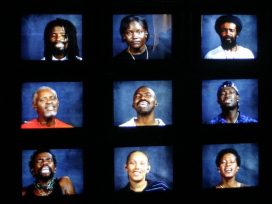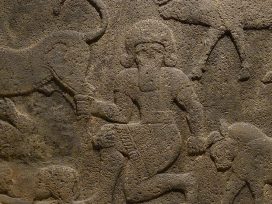We published a profile of Juraj Spitzer in K&K in 1999, so why also in this issue? Spitzer would have been ninety on 14 August 2009, and 11 October 2010 will mark fifteen years since his death. These two dates are enough to justify Kritika‘s return to him.
Our justification also has a personal character. Many of us who knew him personally miss him. His gifts of speech, humour and spirit have remained without a successor in Bratislava. We also miss him as a friend, a valued and loving person, and obviously also as an intellectual and a debater. His understanding of “scepticism and hope” is clearer today when, after experience with communism and post-communism, we are confronted with the casual ignorance of the young generation or the false puritanical moralizing of those who collaborated or were silent before 1989 but found courage when courage became cheaper.
So how do we perceive Spitzer today, twenty years after the fall of the communist regime? As the reactions in this issue make clear, his destiny is not lost in the mists of history and time. Spitzer, together with Dominik Tatarka, remains one of the few personalities respected in both camps of the still divided Slovak elite. Like many of their generation, these two also warmly welcomed the communist regime in 1948, overlooking the “stains on the Sun”, as accused of doing by critics . Tatarka was disappointed ideologically, as was Spitzer as a political activist. Milos Ziak’s efforts to discredit Spitzer in the book Jewropean, and, from the other camp, the occasional attack by Pavol Janík in LT, missed their target.
On the occasion of the ninetieth birthday he was not to see, I addressed several intellectuals and writers about Duro Spitzer. I asked them to produce contributions that were not sentimental, but rather personal or impersonal reflections. The result is twelve considerations in the spirit I hoped to receive. We have no interest in hagiography – which would have given a false impression of Spitzer – or in routine polemic. It is not that Spitzer cannot be polemized against but that those who attack him are uninteresting and predictable in their polemics.
A country doctor
In the end, Duro Spitzer himself provides the best testimony. First of all, he realized that whatever he wrote, did or explained, nothing would change the truth of Plutarch’s statement, which he quotes in a letter to Ján Charnogursky published in this issue: “How difficult it is to explain life in one period, if you live in another.” (p. 105) Secondly, he provides exceptional testimony through his suffering, resistance and heroism during the war and the Slovak National Uprising, as well as self-reflection on his failure after the war in his essays, poetry and in philosophical reflections of the period, reflections he continued to write throughout his life. Thirdly, as a Jew, “who did not want […] to become a Jew”, he would probably have become a country doctor and perceived his Jewish roots just as naturally as his Slovak identity, if it had not been for the Guardists and anti-Semites. Why it did not happen, why he was forced to live a different life, how he could accept it as a boy, is also testimony about our society. Paradoxically, his real destiny provides a more important testimony than if the country doctor Duro Spitzer had played preference every Sunday after lunch with the reverend parish priest and the noble advocate somewhere in his native Krupina.
Another reason why we return to Spitzer is a recording of a discussion from 1996, discovered about a year ago among my recordings. We publish a transcript of it here, together with drawings by Fero Guldan. In studio at radio Ragtime, which sadly no longer exists, seven of us squeezed in on 11 October 1996, exactly a year after Spitzer’s death, to discuss what he had meant to us, to consider his conversations with Alexander Mach, and also his relations with women. Duro’s daughter, Zuzana Szatmáry compared our meeting to a shiva, a traditional Jewish commemoration seven days after the death of a person.
Apart from his published books, Spitzer left a great quantity of manuscripts, studies, reflections, philosophical considerations and collections of poems. The greater part of his work – still unpublished! – dates from the period of Normalization (1969-1989), when he could not publish and was expelled from the Slovak Academy of Sciences. A large part of the manuscripts and published works date from the time after 1989. I was also surprised by the existence of several hundred collages, which he had created for himself like a different form of poetry. These often superb combinations of idea, colour, shape, joke, ingenuity and sadness were not made for others. In contrast to his texts and poems, he did not show and distribute his collages. We offer several of them here, unfortunately only in black and white versions.
Shortly before his death, Spitzer recorded several valuable conversations with Stanislava Chrobáková-Repár and Pavol Lukách. We publish the last part of these recordings. These two people, who loved Spitzer each in their own way and were loved by him in return, were planning a large book but only a few meetings took place.
Some discoveries
When choosing from Spitzer’s texts I made some striking discoveries. Spitzer wrote on a wide range of philosophical, historical, political and literary themes that directly or indirectly touch his survival of the Holocaust, anti-Semitism and the existence of good and evil in man. The leitmotif of his work was the question of what role religion and art play in our lives. Spitzer was a writer, critic and poet, not a systematic philosopher, and so his multitude of literary and philosophical sources, combined with an excellent memory, offers an exceptional overall view but one that may not always be consistent and integrated. His work is part of his own self-reflection, of his own survival, and the non-survival of those close to him who mostly perished in the concentration camps. Spitzer’s poems are often the direct and painful. A poem about his mother ends with the words: “Mother and I want to be alone.” Since his separattion from his mother and almost his whole family as a twenty year old in 1939, he remained alone. In Gerulata elegies he first celebrates solitude:
Solitude is aqua regia
It dissolves cheap metals
Only the noble glitters in it
But later, Spitzer shows his vitality, his desire for life and love:
In solitude we are not alone
Loved beings remain with us
In unchanged form until the last moment
He remained alone but not lonely, and certainly not a recluse. He sought out company and he could passionately debate with intellectuals and also with ordinary people in cafes, on walks in the Old Town or the docks by the Danube. And obviously he could charm the fair sex. Spitzer’s experience and vitality, his knowledge of Hungarian and German, of the history of the region and its art, represented the quintessence of Central Europeanism which now has vanished as a result of fascism and communism. This was also why he had a multitude of admirers and friends in all generations, and why the experience he shared was and is so precious.
His Elegies also contain a celebration of life and source of happiness in adversity:
Death is not a misfortune – we are born to die,
We give birth to sons and daughters for death,
Life can be a misfortune,
Let us entrust it to free hands,
Grant the grace of a final embrace
to a beloved woman, to beloved children
and finally to oneself!
Trauma
I am convinced that Spitzer’s work was influenced by his engagement in politics after the Second World War, as well as by his terrible experiences during the war. It seeps through only occasionally, and indirectly through other authors. For example, he writes that if he had read Freud more observantly, “I could have avoided all kinds of things” (p. 75). Spitzer’s actions are not difficult to explain but they must not be forgotten. He knew that “Spitzer the communist and political activist” must not and would not be condemned together with “Spitzer the prisoner and partisan”. Sharp criticism was directed at him after his death. Spitzer anticipated this and realized that he could not avoid it. He knew that he would carry his trauma to the grave. However, what he left behind is a reflection of this trauma and the self-reflection of a person with has a duty to identify his failures and condemn the results of his actions. In 1990 he wrote:
Something still links us with Mr. Pavol Charnogursky. A similar duty: To express ourselves truthfully with courage, also against ourselves, about the totalitarian regimes we both rejected, one sooner, the other later, although we participated in establishing them in spite of the honourable character of our motives.
Just as he did not want to be a Jew but was, he did have to be a partisan, and he became one. Similarly, he did not know that what he helped “establish” after the war, namely communism, would not remove the potential for relapse into evil or fascism, although at first he naively and desperately hoped it would. However, as a result, he could look truth in the eye, even at the price of sometimes having to take a look at himself in the mirror. Heroism? Certainly not. An “ordinary” human need to sincerely come to terms with his own faults. Rare? Certainly yes. Sadly.
This also explains to me my last “mystery”, namely that up to now I have not encountered criticism of Husák’s Normalization regime in the manuscripts. In this period full of hopelessness, he could not publish, travel or work in his profession like many others. However, it appears that under Husák’s regime he no longer had the feeling that it concerned him, because he did not directly cause it. Husák’s regime was only a less harmful but still monstrous metamorphosis of the regime he had morally and partly also actively helped to establish. The roots of a normalized Czechoslovakia could not be removed by criticism of the regime, like those bravely voiced by the Czech dissidents or by Miro Kusy, Milan Simecka and Ivan Kadlechík in Slovakia. Their activities did not bring down the regime but freed themselves. For Spitzer, the cause and guarantor of Husák’s regime was Stalinism and the Brezhnevites. Not only the “cold”, but also the fall of the communist system could only come from Moscow, and like the great majority, Spitzer did not believe in that.
To criticize the ambitious and sclerotic Gustav Husák, locked up in Prague Castle, was superfluous. As chief editor of Kultúrny zivot (Cultural Life), Spitzer had personal experience of Husák. Criticism of the ambitious Husák, who was willing to do anything to get power and keep it, would be criticism of the consequences and not of the causes of the state of reality, in spite of the fact that Husák’s regime oppressed many people.
For Spitzer, gaining freedom from Nazism and Stalinism was a struggle with the universal evil present in all history, an expression of human smallness even today, a struggle with the forms of evil that also await humanity in the future. That future is already here – fifteen years after Duro’s death we already perceive it more sharply than we could imagine after November 1989. That, I think, is the essence of his “scepticism”. His “hope” is that we cannot be fatalistic and submit to evil without attempting to confront it.
Duro and Dalma
Spitzer’s workroom remained untouched, as his daughter Zuzana to my surprise informed me. Bookshelves, furniture, pictures, writing table and typewriter were still in their places. Duro’s wife Dalma welcomed me cordially and left me with my camera in the workroom, then we sat over Spitzer’s collages, and after forty years I again began to speak informally to her. She reminded me that as a small boy I did not use formal language with her.
Dalma had a similar fate to Duro during the war. For several years she evaded the fascist guards by hiding in the mountains above Ruzomberok. In the end, she fled to Budapest with her sisters. She was eventually caught and deported to Slovakia, her sisters were sent to Auschwitz. Dalma ended up in the prison camp at Nováky where she met Duro. Her survival should have represented the trauma of a holocaust survivor. But Dalma decided to confront this in a different way to Duro and many other survivors. Perhaps also under the burden of her husband’s reflection she outwardly detached herself from her fate during the war. Her whole life is full of optimism and she is still in contact with young people thanks to her acting school. Natural instinct and effort to preserve peace of mind has different forms. Dalma and Duro and their experience are natural, sad, but also optimistic reactions to the cruel history of the twentieth century.
In conclusion, I believe that after reading his texts and poems and the contributions about him, people who did not know Spitzer personally will realize that our society is now missing a person of his character. Duro Spitzer is open – through a multitude of publications and still unpublished manuscripts containing philosophical considerations, essays and poetry – to carry on a dialogue about the light and dark aspects of the unchanging human soul with generations even after ours.
After a tribute to his ninetieth birthday that he did not live to see, we at the Bratislava International School of Liberal Arts (BISLA) have opened the Juraj Spitzer Reading Room for students. It will be decorated by his collages, books and portraits. Above all, we hope that students will discover Spitzer for themselves.






